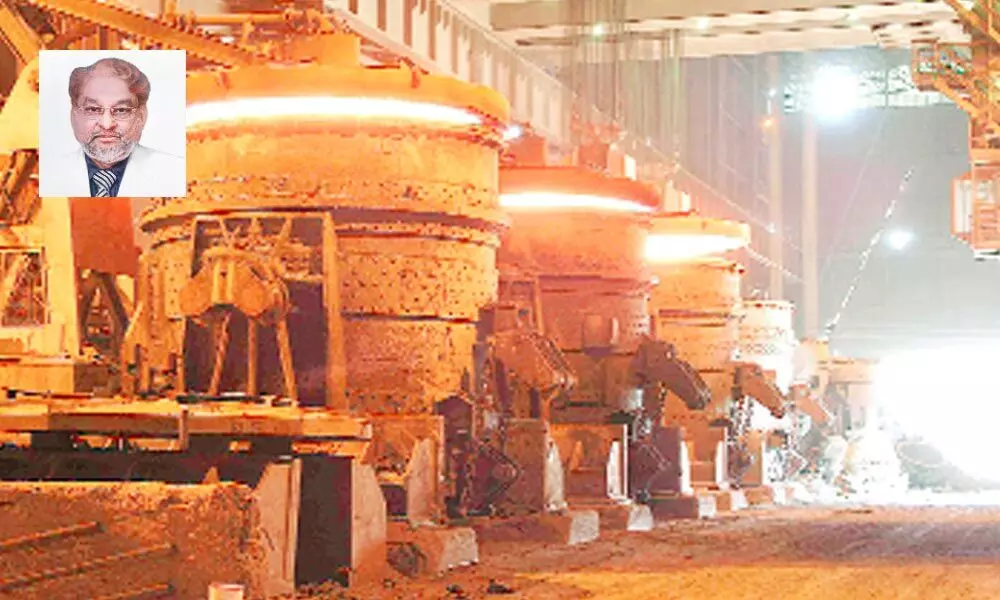Customs duty cut to help revive steel production
Incentives should be given to encourage 100% capacity utilisation
image for illustrative purpose

At present, we are importing around seven million tonne of special steel, which can be produced in India through a diversification programme
Visakhapatnam: BUOYED by signs of recovery after facing the onslaught of Covid-19 pandemic, the domestic steel industry expects to bounce back with renewed vigour with the hope of cut in customs duty on imported raw material and steps to ensure adequate supply of coking coal.
Some of the stakeholders have sought increase in capacity of the major steel plants so as to increase India's share in global steel production. Delayed start in production in China has led to a steep increase in demand for steel products as well as raw material like iron ore and chemicals.
An official of Rashtriya Ispat Nigam Limited (RINL), which owns Visakhapatnam Steel Plant, told Bizz Buzz that the industry would be benefited a lot if the customs duty on imported items is slashed to give a push to domestic steel consumption. The annual production capacity of the Visakhapatnam Steel Plant is 7.3 million tonne. The per capita consumption of steel of India is much below China, the US and other countries.
Former Joint Managing Director and CEO of JSW Steel Y Siva Sagar Rao said the Budget should focus on the vision to achieve Rs 5 trillion economy by 2024 by giving a fillip to steel-intensive sectors like infrastructure, housing, electricity and piped water and connectivity to all villages. "At present, we are importing around seven million tonne of special steel which can be produced in India through a diversification programme."
Rao, former CMD of RINL, said in line with Atma Nirbhar Bharat Abhiyan and to produce it in Indian plants, additional infrastructure needs to be installed by the steelmakers and some incentives are to be provided for linking quality, grade and quantity.
Incentives are to be given to encourage 100 per cent capacity utilisation. National Steel Policy (NSP) 2017 is being implemented to encourage the industry to reach global benchmarks.
He said export duty of 30 per cent has been levied on iron ore (lumps and fines) to ensure supply to the domestic steel industry. Also, the demand for a total ban on iron ore exports should be reviewed to protect the domestic interest.
Rao said to ensure the availability of raw materials, the mines are being auctioned. "It is better to give mines to those who are deprived of raw material security to create a level-playing field," he opined.
The steel industry has a long gestation period in addition to being a capital and labour-intensive industry. To make the plants viable and to create employment, credit facilities should be extended by the financial institutions at a concessional interest with long repayment options.
Steel Exchange India Ltd (SEIL) Executive Director VV Krishna Rao said the Budget should lay emphasis on encouraging integrated steel producers like SAIL and RINL to expand capacity. SEIL produces Simhadri TMT bars with a capacity of 2.5 lakh tonne to three lakh tonne per annum.
He said they were expecting liberal incentives to raise the demand for steel and there should not be any attempt to regulate the domestic market.There is ample scope to increase exports to earn foreign exchange. After being hit by the pandemic there is a lot of demand for raw material as well as finished products from China, he said.

